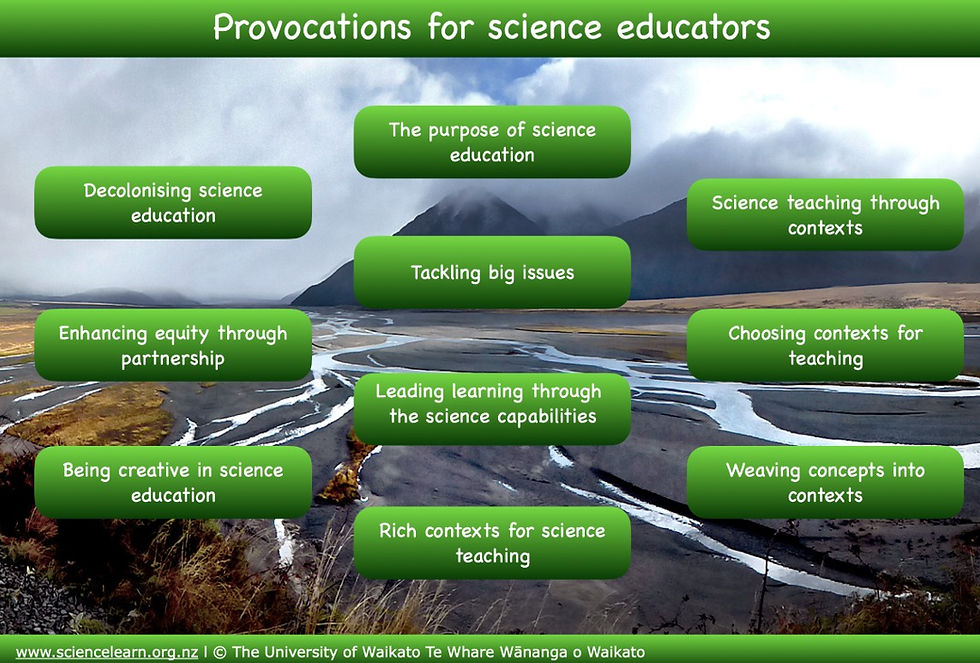Provocations for Science Educators | Science Learning Hub
- Lian Soh

- Aug 2, 2025
- 1 min read
Updated: Aug 2, 2025
Is science about the facts we need to understand the world around us, or does it go beyond this? What barriers exist to decolonising science in your educational setting? What does belonging look like in a science classroom? What big issues do you face in your local area? If this sounds overwhelming, what are some steps that you might take to make this type of planning achievable?
Pokapū Akoranga Putaiao, the Science Learning Hub, has developed an interactive map called Provocations for Science Educators, designed to spark conversation and reflection about the purpose, shape, and practice of science education in Aotearoa New Zealand.

The provocations are grouped into themes such as contexts, decolonisation and equity. These prompts have been desined for use in team settings, planning days, or professional learning conversations. Each one encourages kaiako to pause, question assumptions, and explore possibilities — especially in a time when science education is shifting in response to curriculum change, community voice, and the world our ākonga are growing up in.
Young people need to be equipped to deal with the future they’ll be living and working in.
Whether you’re working through a local curriculum review, mentoring others, or simply reflecting on your own practice, this is a useful place to start.
Each provocation links to a bite-sized one-to-two-minute video featuring kaiako and educators sharing their whakaaro. It’s been a privilege to help āwhi this kaupapa alongside others supporting science education in the Bay of Plenty and beyond.



Comments